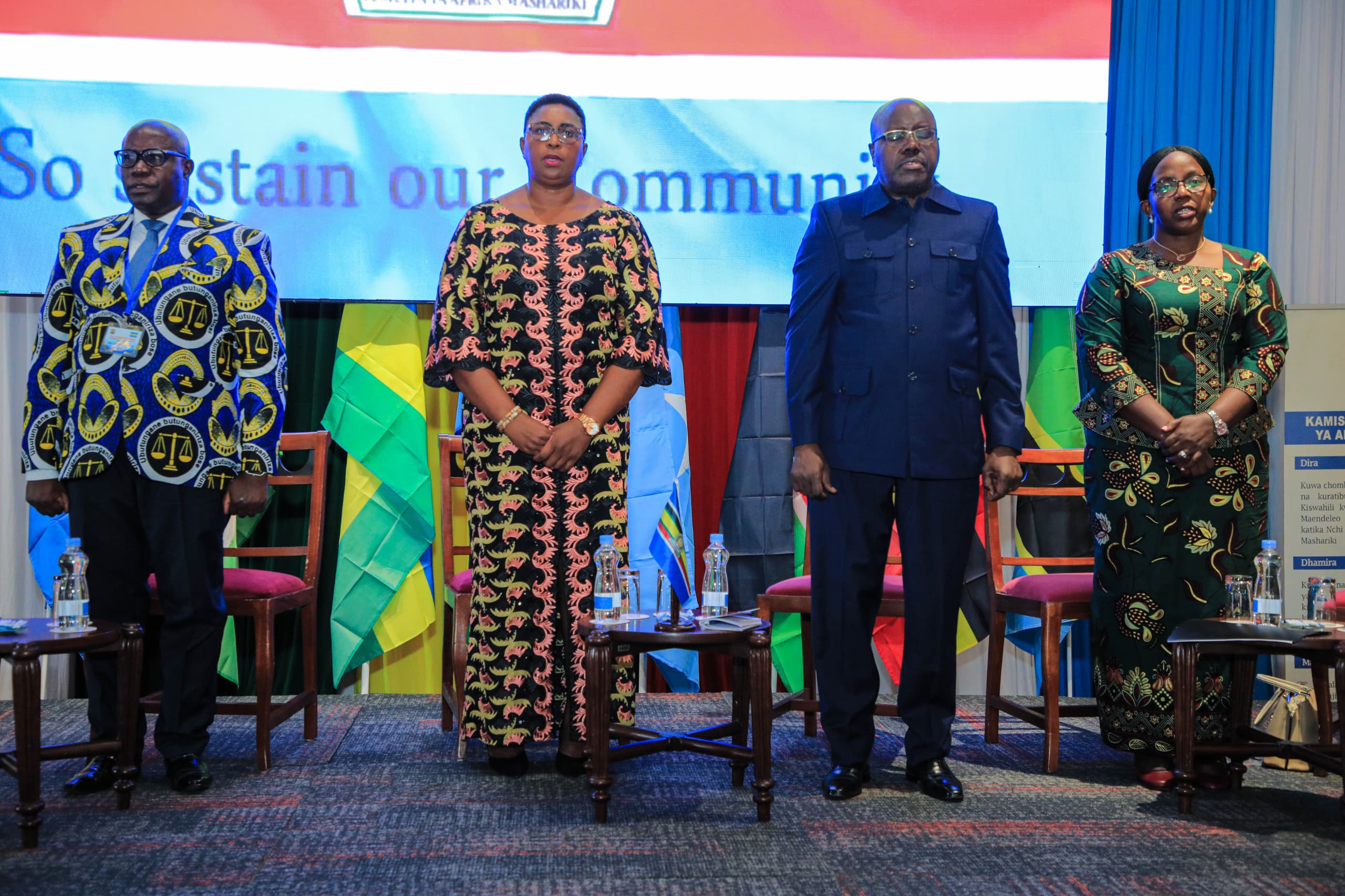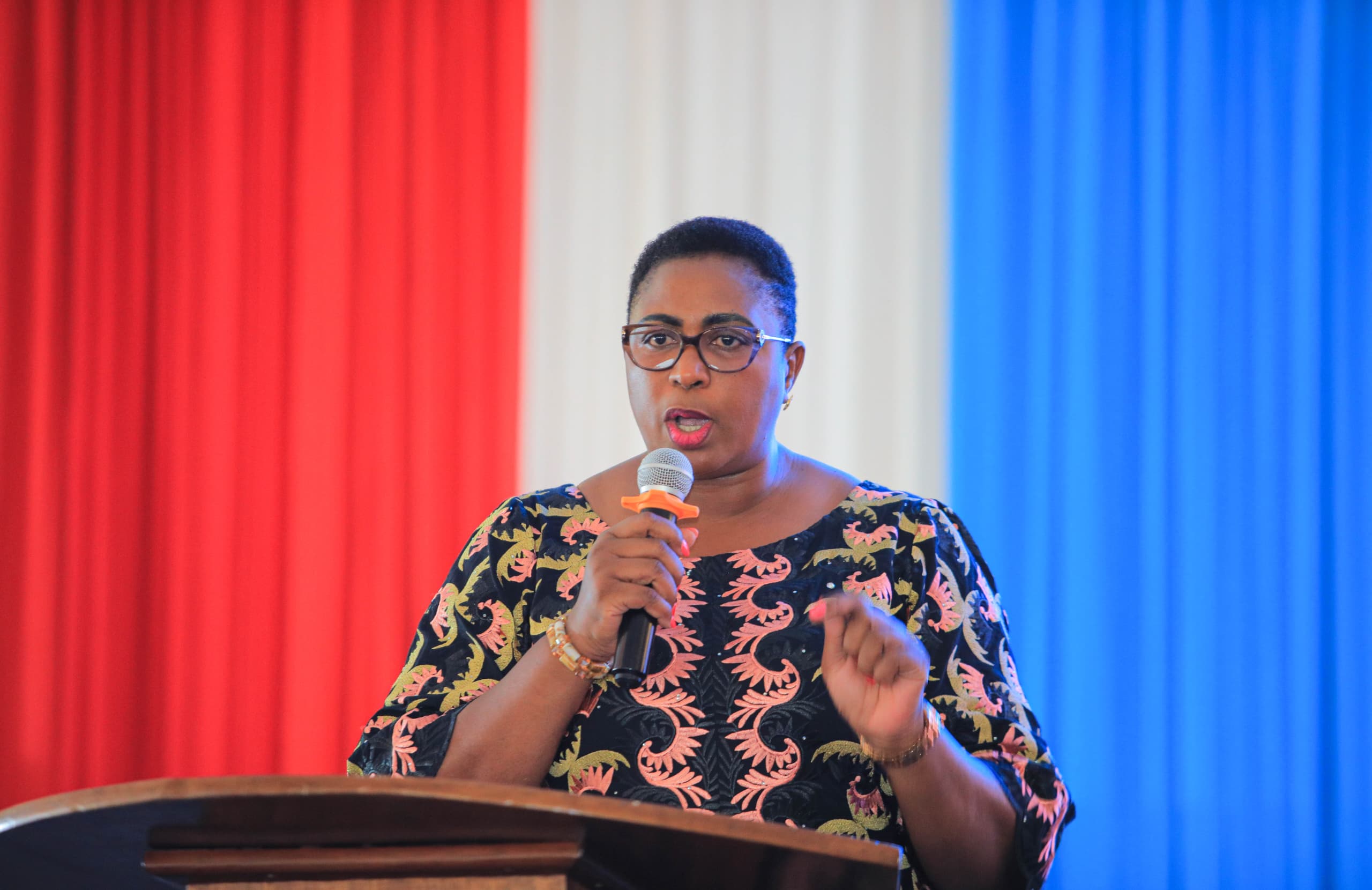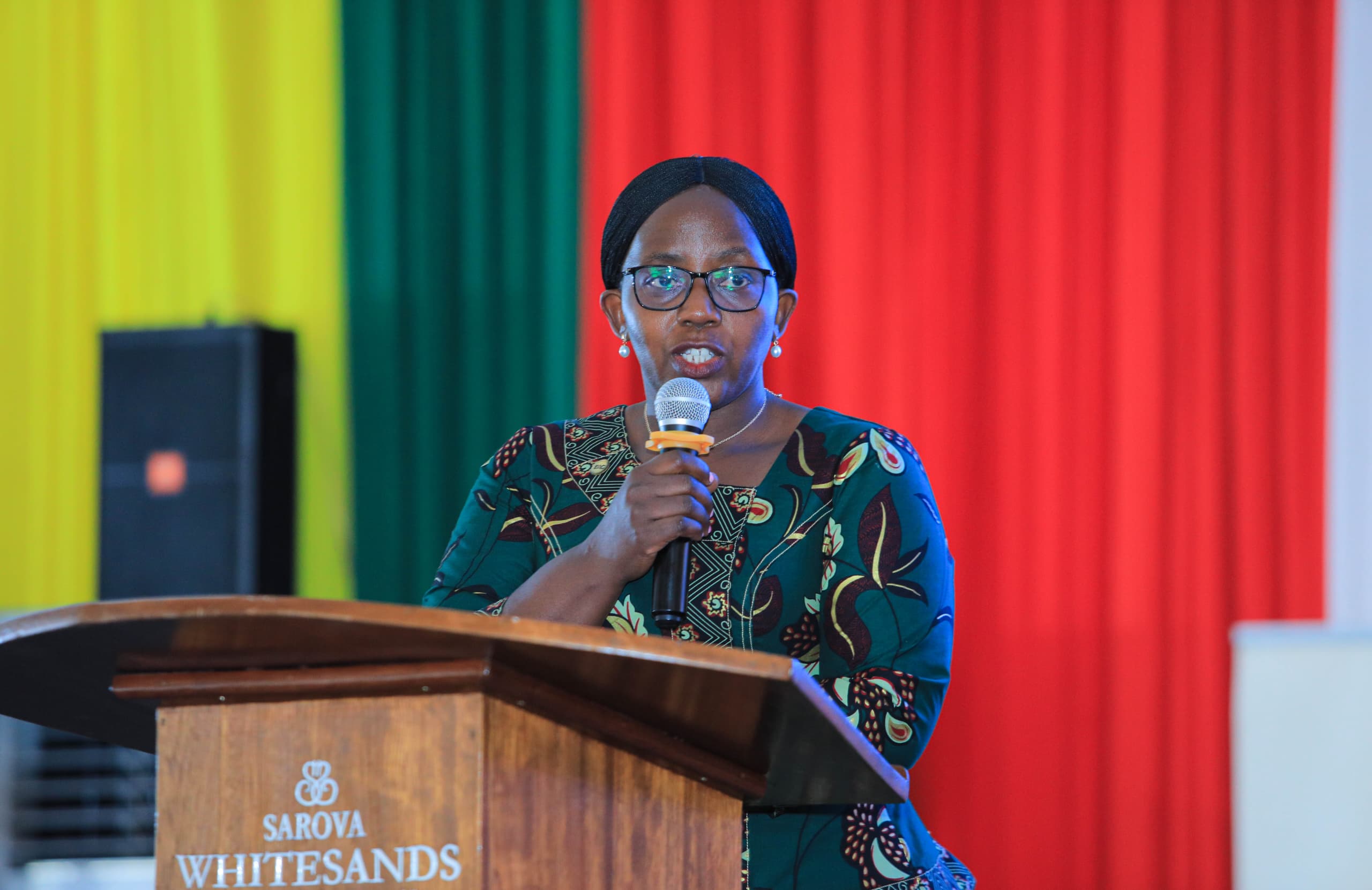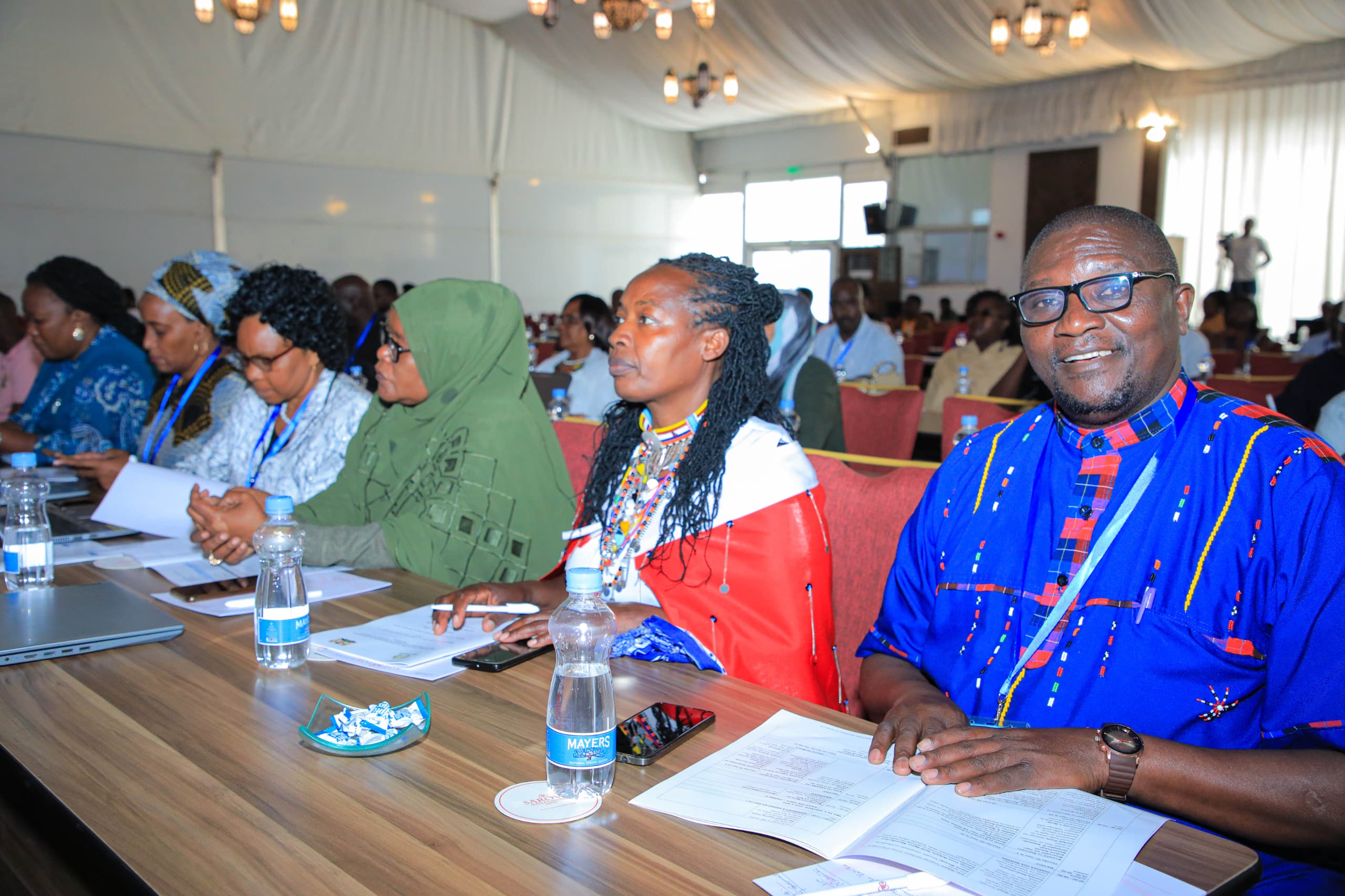
East African Community citizens urged to support the development of the Kiswahili language to foster regional unity
East African Community Headquarters, Arusha, Tanzania, 6th July, 2024: East African Community (EAC) citizens have been called upon to proactively develop and embrace Kiswahili, in a move aimed at promoting and celebrating the language's rich cultural heritage and fostering its unifying impact across the region.
Delivering the keynote address during the official opening session of the 2nd East African Kiswahili Commission (EAKC) International Conference in Mombasa, Kenya, Kenya’s Cabinet Secretary in charge of Gender, Culture, the Arts and Heritage, Hon. Aisha Jumwa, urged East Africans to be proactive in developing Kiswahili and other African languages to enhance their global competitiveness.
“Kiswahili is spoken by over 200 million people worldwide. This demonstrates that our efforts to promote the language are yielding results and we should continue to advance these efforts,” she stated.

The Cabinet Secretary disclosed that Kenya is considering establishing a National Kiswahili-Speaking Day as part of efforts to promote the language at national level.
“In Kenya, we are discussing the possibility of designating a special day, possibly the 7th of July, when every Kenyan, including the President, judges, civil servants, and teachers, will be expected to speak exclusively in Kiswahili," she said.
Hon. Jumwa further revealed that Kenya was in the final stages of establishing the National Swahili Council to develop specific strategies, methods and policies needed to promote and develop Kiswahili in the country, in addition to collaborating with national and private actors involved in the development of the Kiswahili language.
The two-day conference precedes the 3rd EAC World Kiswahili Language Day set for Sunday, 7th July. The three-day celebrations are aimed at exploring the role of Kiswahili and multilingual education in fostering a culture of peace.
Speaking at the event, the EAKC Executive Secretary, Dr. Caroline Asiimwe, said that the conference aims to provide a platform for Kiswahili stakeholders to share knowledge, research evidence, best practices, experiences and perspectives on the role of Kiswahili education in enhancing a culture of peace.

“Kiswahili is not just a language of communication; it is fundamental to building our society, nations, and the EAC region. The issues discussed at the conference and the recommendations made will be crucial for the Commission to consider and implement in contributing to coordinated efforts to use Kiswahili for sustainable development in the EAC,” said Dr. Asiimwe.
“Peace is the foundation of development, and Kiswahili is also a pillar of development. It is encouraging that Kiswahili has been adopted as an official or national language in most EAC Partner States and is being taught at various levels of the school system,” added Dr. Asiimwe.
Speaking at the event, the Judge President of the East African Court of Justice (EACJ), Justice Nestor Kayobera, emphasised the critical importance for officials of Partner States’ governments and EAC Organs and Institutions to consistently uphold the provisions of the EAC Treaty in the execution of their duties.
Justice Kayobera reiterated that strict adherence to the Treaty is essential to preventing unnecessary legal disputes before the EACJ, noting the significant financial resources spent on compensating aggrieved parties due to violations of the Treaty.

On his part, the Speaker of the East African Legislative Assembly (EALA), Rt. Hon. Joseph Ntakirutimana, expressed optimism about the future global prevalence of Kiswahili.
“To achieve regional cooperation, unity, socioeconomic development and prosperity, it is essential to strengthen our interactions through the use of a common language,” said Rt. Hon. Ntakirutimana.
The Speaker called on Partner States Ministers of EAC Affairs and other stakeholders to advocate for the adoption of Kiswahili as an official language across the region.
"Kiswahili is poised to transcend borders, becoming a universal language spoken across continents. This would signify a significant milestone for East Africa," Rt. Hon. Ntakirutimana remarked.
Also present at the event was the Kenyan Tourism and Wildlife Cabinet Secretary, Dr. Alfred Mutua, Heads of EAC Institutions, Members of the Diplomatic Corps, among other dignitaries.
For more information, please contact:
Simon Peter Owaka
Senior Public Relations OfficerCorporate Communications and Public Affairs DepartmentEAC SecretariatArusha, TanzaniaTel: +255 768 552087Email: This email address is being protected from spambots. You need JavaScript enabled to view it.
About the East African Community Secretariat:
The East African Community (EAC) is a regional intergovernmental organisation of eight (8) Partner States, comprising the Republic of Burundi, the Democratic Republic of Congo, the Republic of Kenya, the Republic of Rwanda, the Federal Republic of Somalia, the Republic of South Sudan, the Republic of Uganda and the United Republic of Tanzania, with its headquarters in Arusha, Tanzania. The Federal Republic of Somalia was admitted into the EAC bloc by the Summit of EAC Heads of State on 24th November, 2023 and became a full member on 4th March, 2024.
